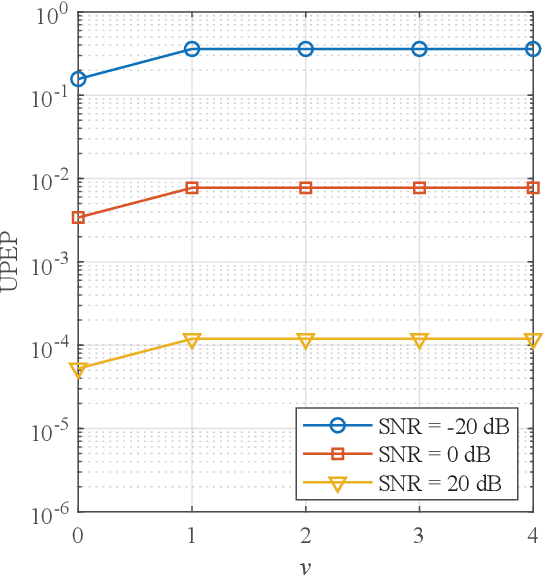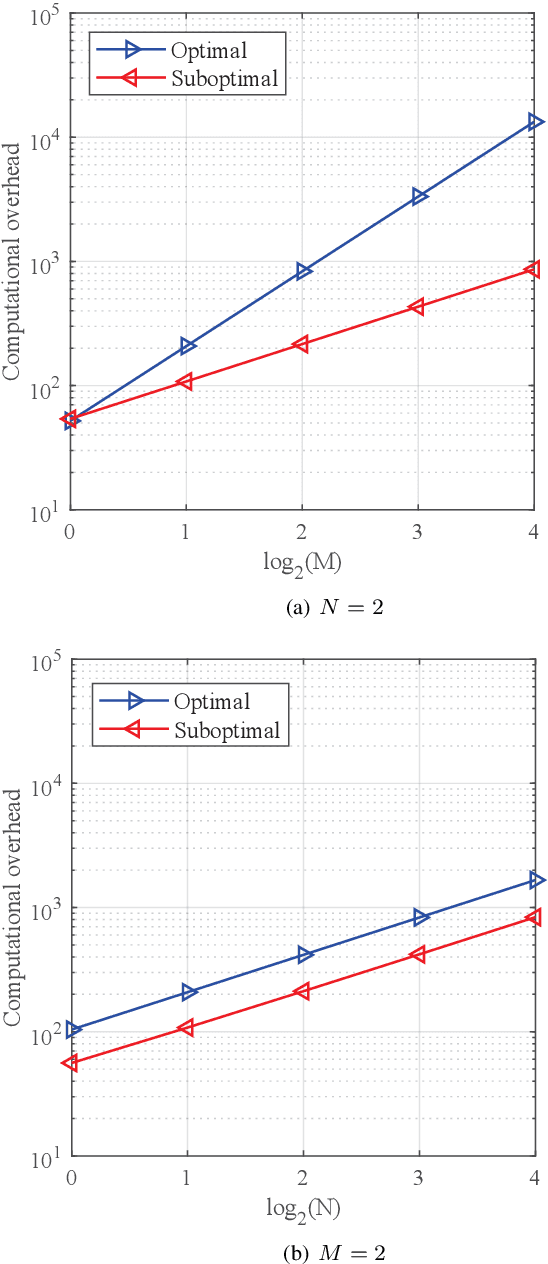Performance Analysis of RIS-Aided Double Spatial Scattering Modulation for mmWave MIMO Systems
Paper and Code
Oct 08, 2023



In this paper, we investigate a practical structure of reconfigurable intelligent surface (RIS)-based double spatial scattering modulation (DSSM) for millimeter-wave (mmWave) multiple-input multiple-output (MIMO) systems. A suboptimal detector is proposed, in which the beam direction is first demodulated according to the received beam strength, and then the remaining information is demodulated by adopting the maximum likelihood algorithm. Based on the proposed suboptimal detector, we derive the conditional pairwise error probability expression. Further, the exact numerical integral and closed-form expressions of unconditional pairwise error probability (UPEP) are derived via two different approaches. To provide more insights, we derive the upper bound and asymptotic expressions of UPEP. In addition, the diversity gain of the RIS-DSSM scheme was also given. Furthermore, the union upper bound of average bit error probability (ABEP) is obtained by combining the UPEP and the number of error bits. Simulation results are provided to validate the derived upper bound and asymptotic expressions of ABEP. We found an interesting phenomenon that the ABEP performance of the proposed system-based phase shift keying is better than that of the quadrature amplitude modulation. Additionally, the performance advantage of ABEP is more significant with the increase in the number of RIS elements.
 Add to Chrome
Add to Chrome Add to Firefox
Add to Firefox Add to Edge
Add to Edge